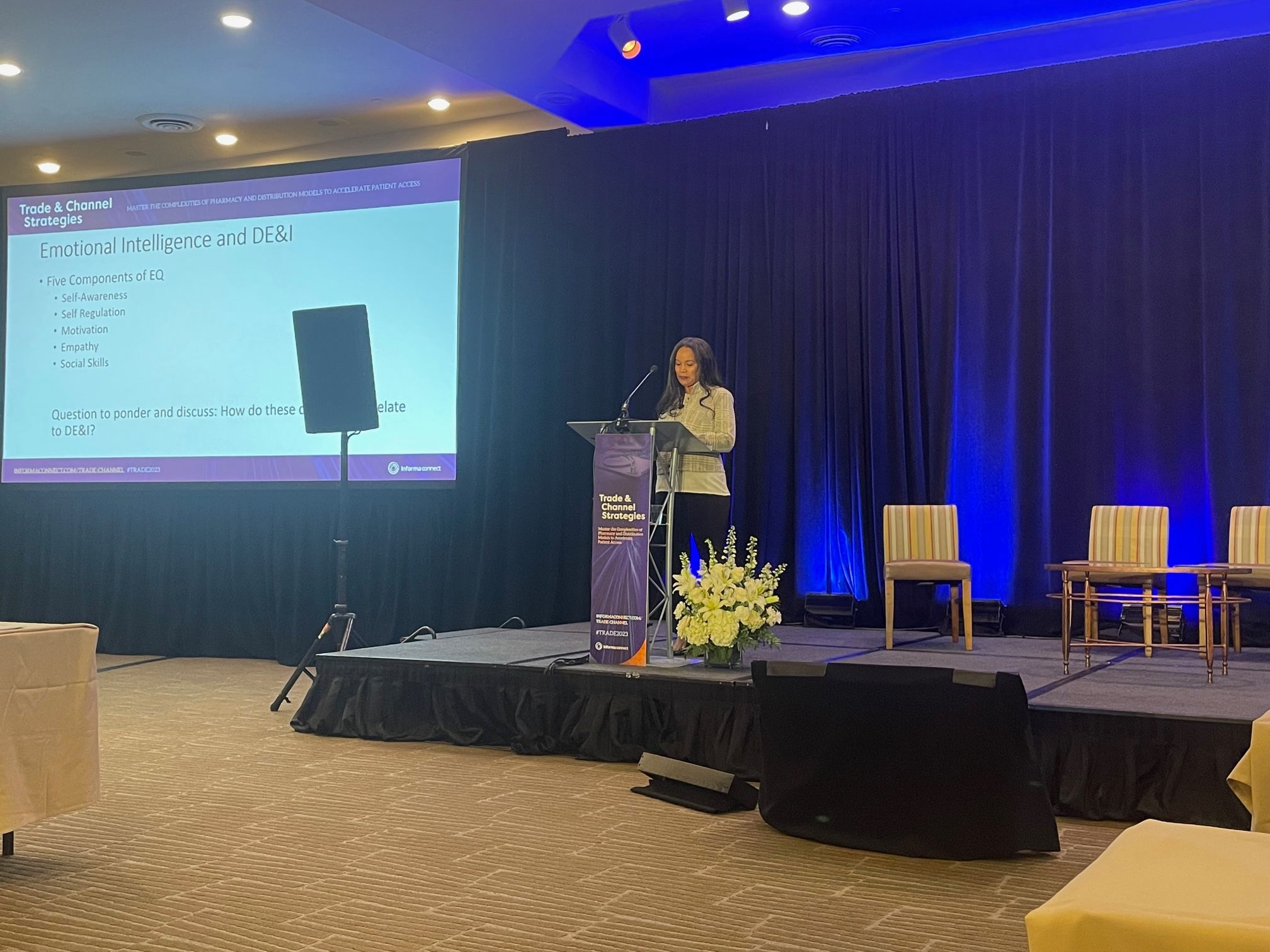Trade & Channel Strategies 2023: DE&I Within the Life Sciences Space
The conference hosts a diversity, equity, and inclusion (DE&I) Summit featuring personal insights and experiences.
Trade & Channel Strategies session, "Emotional Intelligence and DE&I.” December 13, 2023. Trade & Channel Strategies, Philadelphia, Pa. Image Credit: Nicholas Saraceno.

Day 3 of the Trade & Channel Strategies conference in Philadelphia continued its momentum with a DE&I Summit featuring Danielle Helm, area business leader within Novartis’ oncology department, whose career in the pharma and biotech space spans 24 years. Helm noted that she encountered her share of exclusion, including at the college preparatory high school in Virginia that she attended.
The heart of the discussion not only focused on DE&I but emotional intelligence as well, which is why Helm decided to title the presentation “Emotional Intelligence and DE&I.” Also known as EQ, the concept dates back to the work of psychologist Daniel Goleman, who published the book Emotional Intelligence: Why It Can Matter More Than IQ. He describes EQ as a person's ability to manage their feelings, so that those feelings are expressed appropriately and effectively.
There are typically five components of EQ:
- Self-awareness: Awareness of one’s self
- Self-regulation: Do we walk in tandem with our emotions, and then act and behave accordingly?
- Motivation: What inspires us?
- Empathy: How we show up for others, and how we express our care and concern for others. Helm feels that this is the heart of DE&I.
- Social skills/social awareness: How we build relationships with others; for example, can one join a meeting and properly read a room?
“We all have unconscious biases at work. [DE&I] can help to create and continuously cultivate that truly inclusive culture … culture with improving mindfulness, and also constructive thinking,” Helm noted.
As she expressed, EQ not only enhances DE&I at work by cultivating empathy for others, but it:
- Addresses & ameliorates unconscious bias
- Improves mindfulness
- Boosts constructive thinking
Another concept just as important is cultural intelligence, which is a proposed measure of someone’s ability to adapt to interactions with people who are from other cultural backgrounds. Modeling cultural intelligence can come in the form of being curious and genuinely fascinated in others by asking questions and looking to understand them.
Novartis recently held an event where women we highlighted women in senior leadership roles. The women then shared their stories about the different biases and microaggressions that they faced in navigating their careers; a microaggression is a statement, an action, or an incident that's regarded as an instance of indirect, subtle, or unintentional discrimination against members of a marginalized group, such as race, or racial or ethnic minority.
The company also created more diverse interview panels and connected more employees to employee resource groups (ERGs), but as it pertains to microaggressions, Helm shared a personal story that happened to a close friend who is also African American.
“She was mistaken for another African American female, and the person came up to her and just automatically assumed that that's who she was, he didn't really lean in or try to make sure that it was. He called her somebody else's name, and then proceeded to have this conversation with her,” Helm recounted. “And she said that it made her feel discounted, it made her feel sort of belittled, it made her feel like she wasn't an individual, that she was painted with this broad brush and looked at as just part of this population.”
Looking ahead to 2024, Novartis wants to improve the “speak-up culture” so that all voices are heard; diversify leadership panels and professionally call out events that lack diversity; and build a short list of initiatives (internally and externally) that can continue to move the needle forward in terms of DE&I efforts.
Reference
Emotional Intelligence and DE&I. December 13, 2023. Trade & Channel Strategies, Philadelphia.